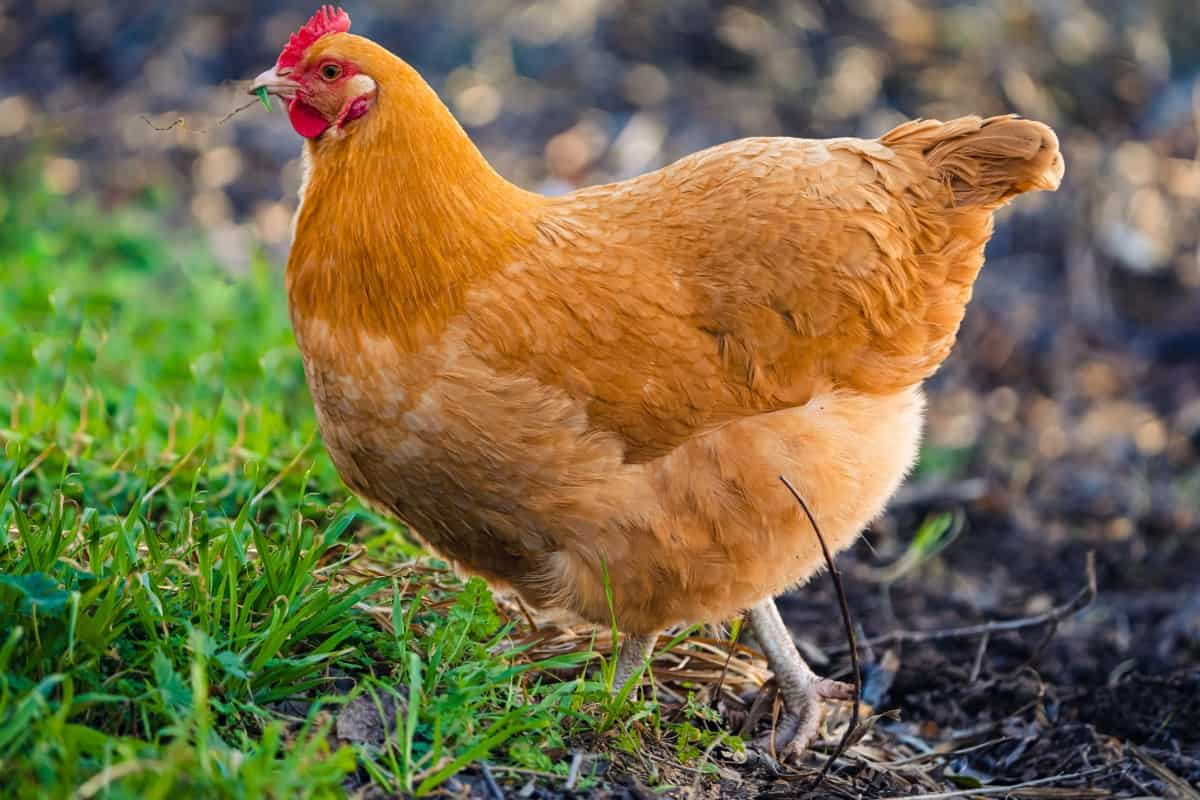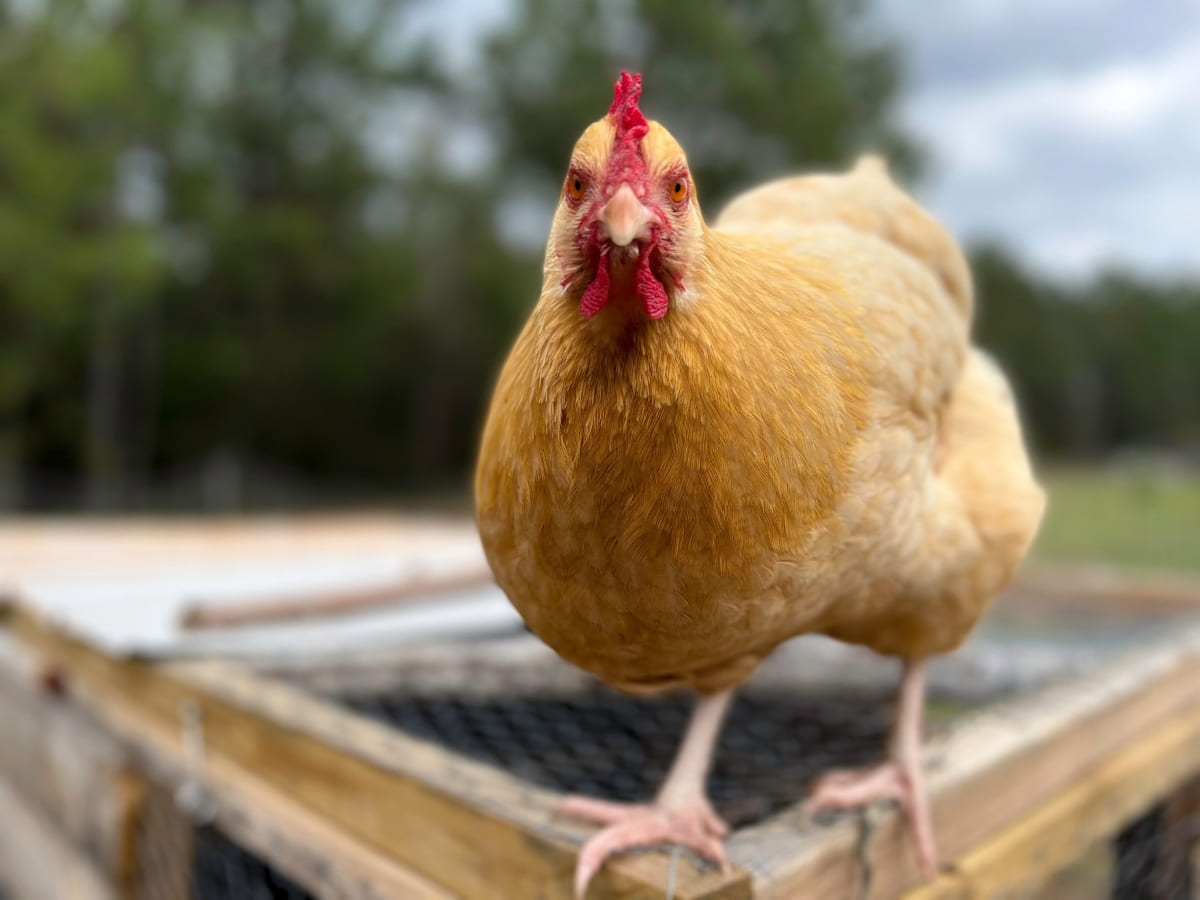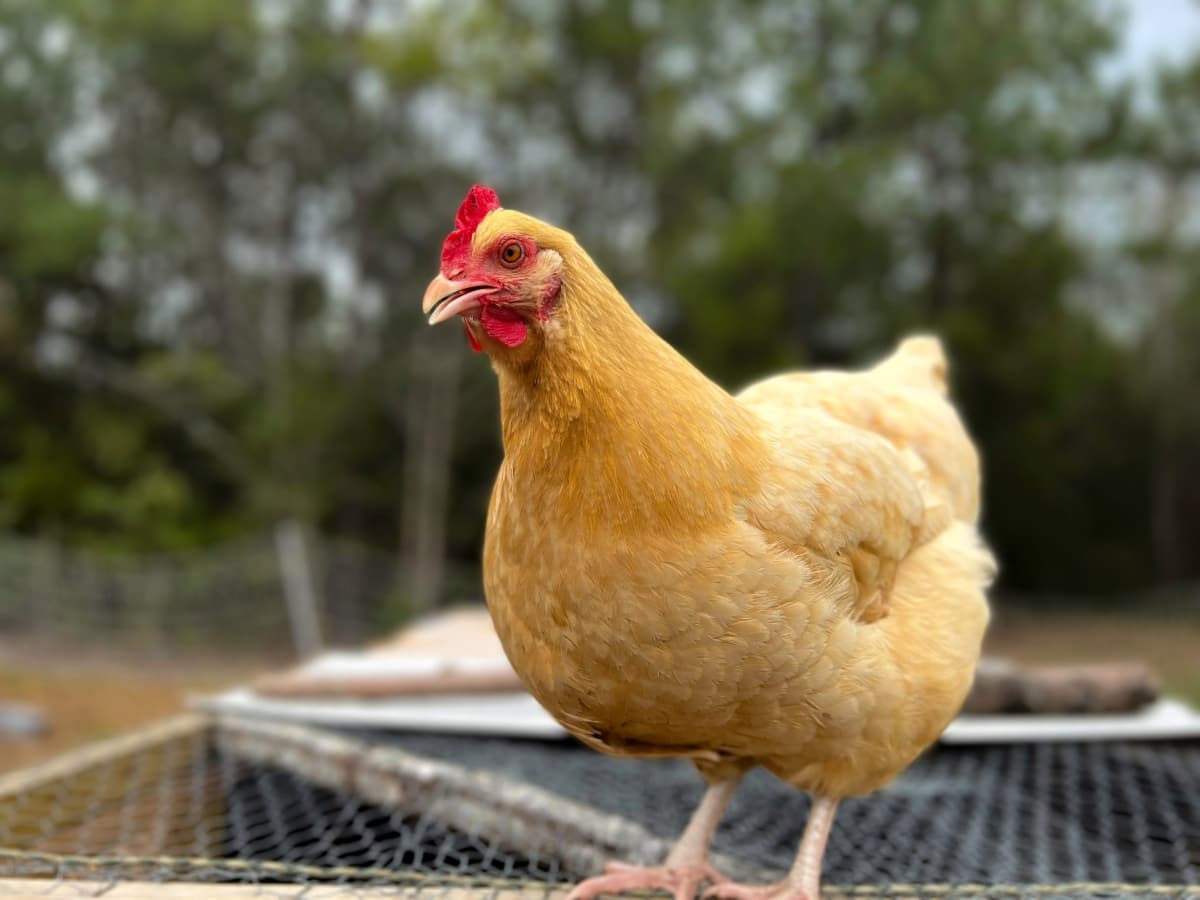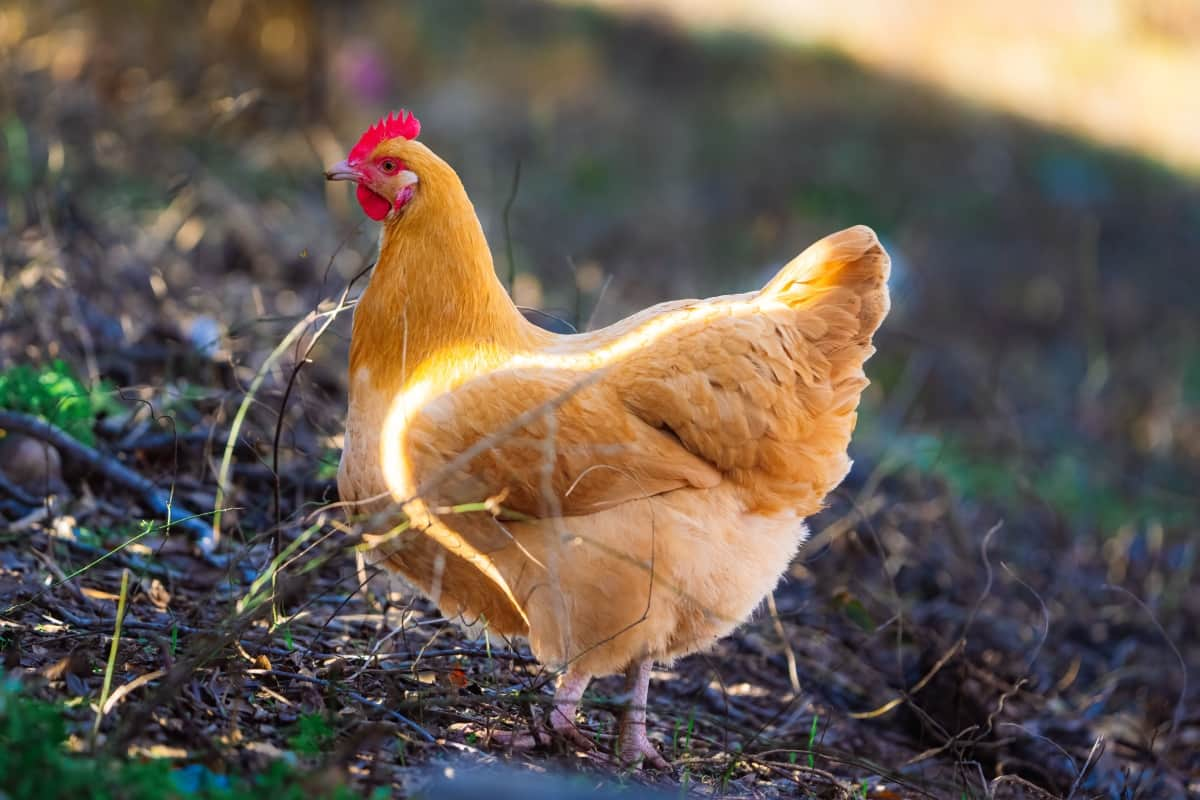Raising Buff Orpington hens can be a rewarding experience for poultry enthusiasts. Known for their friendly demeanor and excellent egg-laying capabilities, these hens thrive with proper care. This comprehensive guide covers crucial aspects of their management, from diet and life cycle to overall care. This article provides essential insights to ensure the health, happiness, and productivity of your Buff Orpington hens, fostering a fulfilling and sustainable backyard chicken-raising experience.

How to Raise Buff Orpington Hen
Unique Needs of Buff Orpington Hens
Buff Orpington hens, known for their gentle disposition, have specific requirements that contribute to their well-being. Their soft, fluffy plumage demands careful attention, particularly in colder climates. Adequate shelter and insulation are crucial to protect them from harsh weather conditions, preventing potential health issues.
These hens thrive in free-range settings, benefiting from ample space for natural foraging and dust baths. Their maternal instincts make them excellent brooders, necessitating suitable nesting areas for the successful hatching and rearing of baby chickens. Regular interaction and socialization are vital to maintaining their friendly demeanor promoting a stress-free environment.
Nutritional Requirements for Buff Orpington Hens
Start with a high-quality layer feed rich in protein, vitamins, and minerals. Supplement this with grains, seeds, and leafy greens for variety and added nutrients. Access to fresh and clean water for digestion and overall health. Calcium supplementation, provided through crushed oyster shells or recycled eggshells, is crucial to support strong eggshells.
Careful monitoring of their diet prevents obesity, a common concern for Buff Orpingtons. During molting or colder seasons, increasing protein intake aids feather regrowth and helps maintain warmth. Regular assessments of body condition allow for adjustments in the diet, ensuring a balanced and tailored nutritional approach for these unique and delightful hens.
Creating the Ideal Habitat for Your Buff Orpington Hen
- Provide a well-ventilated coop with ample space, allowing each hen at least 2 to 3 square feet. Ensure good airflow to prevent moisture buildup and respiratory issues.
- Insulate the coop to keep them warm in winter and cool in summer. Provide proper bedding, such as straw or shavings, for comfort.
- Incorporate nesting boxes in a quiet, secluded area of the coop. Buff Orpingtons are good layers, so ensure each hen has access to a comfortable nesting space.
- Create a designated dust bath area filled with sand or fine dirt. Dust baths help keep their plumage clean and control parasites.
- Ensure a supply of fresh, clean water. Buff Orpingtons may consume more water, especially during egg-laying, so monitor and refill as needed.
- Set up feeding stations with access to a balanced layer feed. Supplement their diet with treats like grains, fruits, and vegetables for added nutrition.
Behavioral Training for Buff Orpington Hens
- Establish a consistent routine for feeding, cleaning, and handling to create a sense of predictability.
- Positive reinforcement, with treats or verbal praise, can be used to encourage desired behaviors, like returning to the coop or using designated nesting boxes.
- Gentle handling and exposure to human contact from an early age help build trust and reduce fear.
- Use a calm and patient approach, as Buff Orpingtons responds well to gentle guidance.
- Incorporating stimulating activities, like introducing new items or allowing supervised free-ranging, can also prevent boredom and encourage mental engagement.
In case you missed it: Rooster vs Hen: Key Differences to Identify Rooster and Hen Chicken

Preventive Healthcare Strategies for Buff Orpington Hens
Start by establishing a regular health-check routine, examining feathers, eyes, and legs for any abnormalities. Provide a balanced diet with proper nutrition to support overall health, including strong egg production. Maintain a clean coop, routinely removing droppings and ensuring proper ventilation to prevent respiratory issues.
Administer vaccinations as recommended by a poultry veterinarian to safeguard against common diseases. Monitor weight and behavior changes, addressing any concerns promptly. Also, practice biosecurity by limiting exposure to potential contaminants and quarantining new additions.
Life Cycle Of Buff Orpington Hens
The life cycle of a Buff Orpington hen spans various developmental stages, from hatching to maturity. It begins in an incubator or under a broody hen, where the eggs typically take 21 days to hatch. Baby chickens require a brooder for warmth and a starter feed rich in nutrients. As they grow, a transition to grower feed supports their development. Around 18-24 weeks, Buff Orpingtons reach sexual maturity and start laying eggs.
The productive laying phase continues for several years, with optimal care and nutrition ensuring consistent egg production. During this time, hens may also experience molting, a natural shedding and regrowth of feathers. As they age, egg production gradually declines, and attentive care becomes crucial to maintaining their health and comfort throughout their later years.
Buff Orpington Egg Production
- Buff Orpington Egg Laying Age: Buff Orpington hens typically start laying eggs at 5 to 7 months of age.
- Eggs Do Buff Orpingtons Lay Per Week: Buff Orpington hens are prolific layers, capable of producing 4 to 5 large brown eggs per week on average.
- Buff Orpington Egg Size: Buff Orpington hens typically lay large-sized brown eggs. The exact size can vary slightly among individual hens, but on average, the eggs are larger when compared to some other breeds.
- Buff Orpington Egg Color: Buff Orpington hens lay brown eggs. The color of the eggs can vary in shades of brown, but they are generally brown throughout.
- Eggs Do Buff Orpington Lay Per Week: Buff Orpington hens typically lay about 4 to 5 large brown eggs per week on average.
When Do Buff Orpingtons Stop Laying Eggs?
Buff Orpingtons, like other chicken breeds, may gradually decrease their egg production as they age. Typically, hens start laying eggs at around 5 to 7 months of age and reach peak production at about 1 to 2 years old.
Buff Orpington Hen Size, Price, and Lifespan
Buff Orpington Hen Size: On average, they weigh between 3.2 and 3.6 kg. Their robust build, rounded bodies, and feathering contribute to their impressive size, making them one of the larger breeds of chicken.
Buff Orpington Hen Price: The price of Buff Orpington hens can vary depending on various factors, including location, breeder reputation, and whether the hen is meant for show or production. On average, you might find Buff Orpington hens priced between $20 to $50, but prices can fluctuate.
Buff Orpington Hen Lifespan: With proper care, Buff Orpington hens have a lifespan of around 8 to 10 years. Factors such as genetics, nutrition, living conditions, and healthcare contribute to their overall longevity.
In case you missed it: Ayam Pelung: Chicken Breed Profile, Characteristics, Temperament, Breeding, and Price

Breeding Buff Orpington Hens
Choose breeding stock with desirable traits such as a gentle temperament, good egg production, and conformity to breed standards. Ensure hens are in prime reproductive condition, typically starting at around 5 to 7 months of age. Provide a comfortable and secure environment conducive to natural mating or artificial insemination.
Monitor the health of both the rooster and hens, addressing any issues promptly. Collect and incubate fertilized eggs for hatching, maintaining proper temperature and humidity. The resulting baby chicken inherits traits from the parent stock, contributing to the preservation and improvement of Buff Orpington characteristics in successive generations.
Winter Care for Buff Orpington Hens: Buff Orpington Chickens Care
Provide a well-insulated coop with proper ventilation to prevent moisture buildup. Add extra bedding like straw or shavings for warmth. Install a heat source if necessary, avoiding direct contact with the birds. Ensure access to fresh water, as dehydration is a risk in winter. Adjust their diet to include extra calories for increased energy needs. Encourage physical activity to generate body heat by creating an engaging environment. Regularly check for signs of frostbite on combs and wattles and provide additional protection if needed.
Common Problems in Raising Buff Orpington Hens
- Broodiness: Buff Orpingtons have strong maternal instincts and may become broody, disrupting egg-laying. Manage broodiness by collecting eggs regularly and providing an environment that discourages nesting.
- Predators: As friendly birds, Buff Orpingtons may be more vulnerable to predators. Secure the coop with sturdy fencing, locks, and adequate lighting to protect them from threats.
- Feather Pecking: In confined spaces, Buff Orpingtons may exhibit feather pecking. Ensure sufficient space, environmental enrichment, and a balanced diet to prevent this behavior.
- Egg-related Issues: Problems like soft-shelled eggs, egg eating, or laying issues can occur. Address nutritional deficiencies, provide proper nesting areas, and promptly address any health concerns.
In case you missed it: Ayam Bekisar Chicken Breed: Origin, Uses, Features, Price, Characteristics, and Life Span

Conclusion
Successfully raising Buff Orpington hens involves a holistic approach. These steps contribute to the well-being and productivity of these friendly birds. Tailoring your approach based on their unique needs ensures a fulfilling and sustainable experience, fostering a thriving environment for Buff Orpington hens in your care.
- Feed Your Flock for Less: Top 10 Tips to Save on Chicken Feed
- Ultimate Guide to Ossabaw Island Hog: Breeding, Raising, Diet, and Care
- Hatching Answers: The Top 10 Reasons Your Chickens Aren’t Laying Eggs
- Eggs and Economics: Breaking Down the Cost of Raising Backyard Chickens
- Defend Your Greens: Proven Methods to Keep Iguanas Out of Your Garden
- Ultimate Guide to Cinnamon Queen Chicken: A Comprehensive Guide for Beginners
- Ultimate Guide to California Tan Chicken: Breeding, Raising, Diet, Egg-Production and Care
- Ultimate Guide to Marsh Daisy Chicken: Breeding, Raising, Diet, and Care
- 10 Types of Chicken Farming Businesses You Can Start for Profits